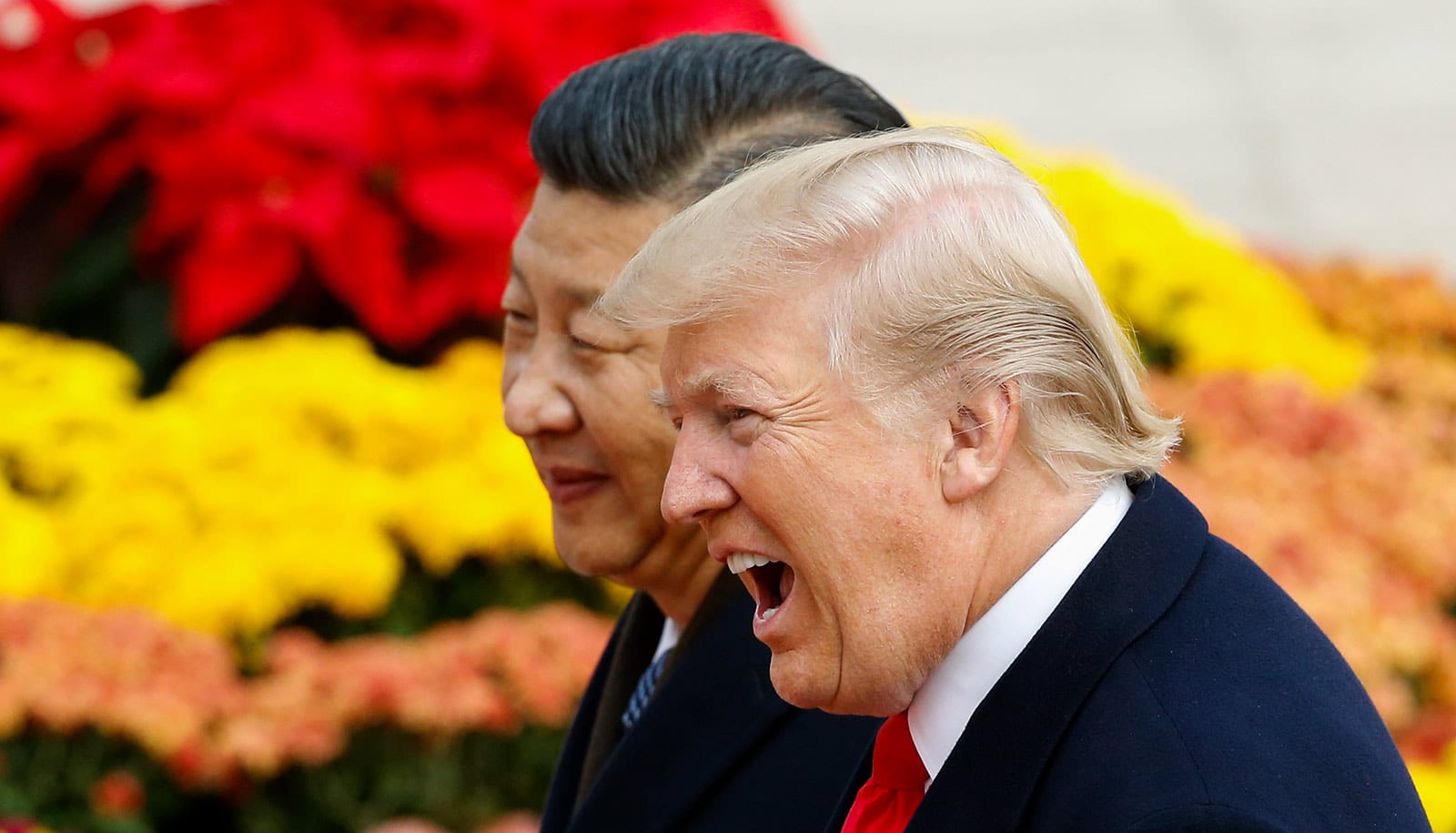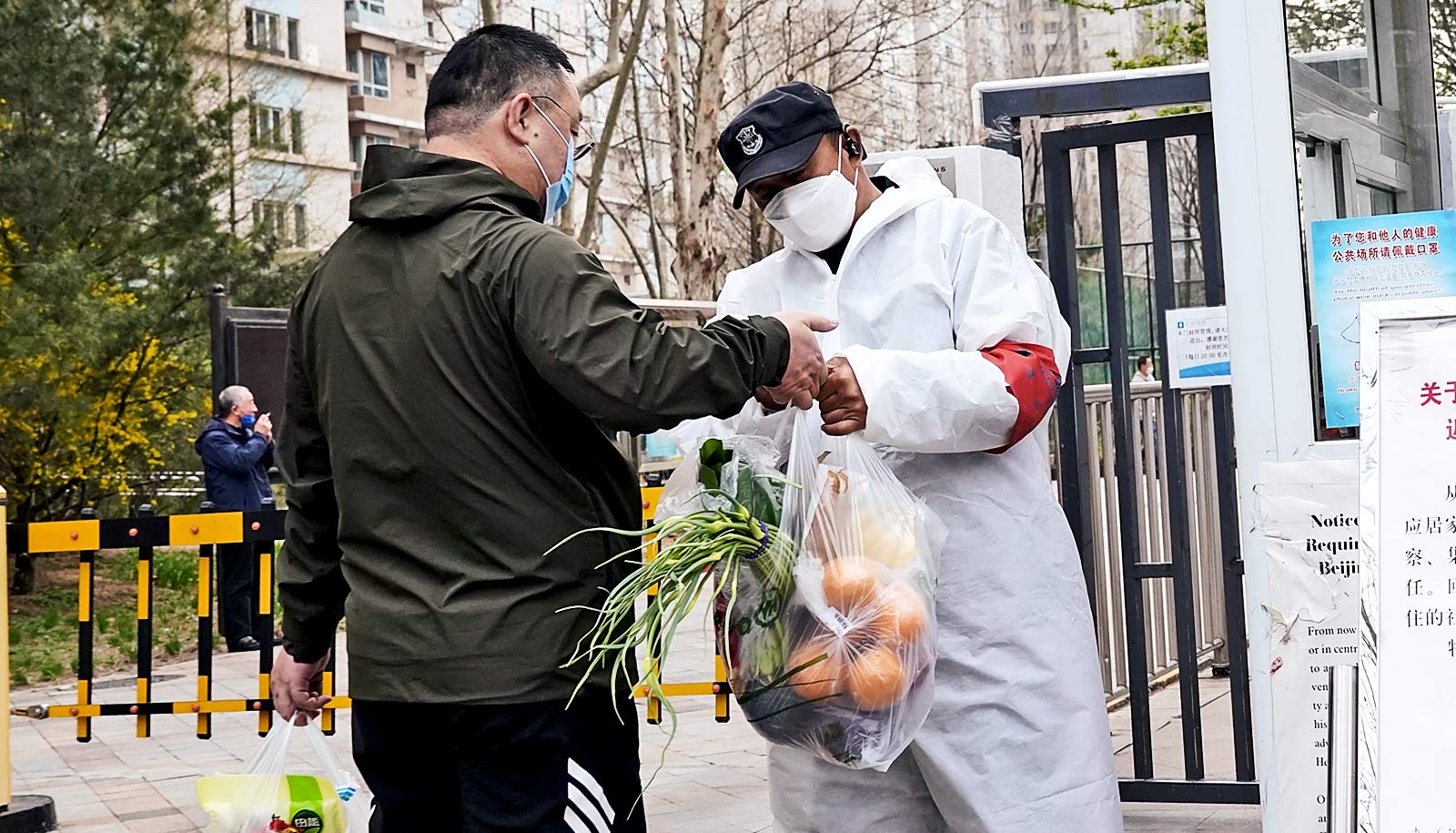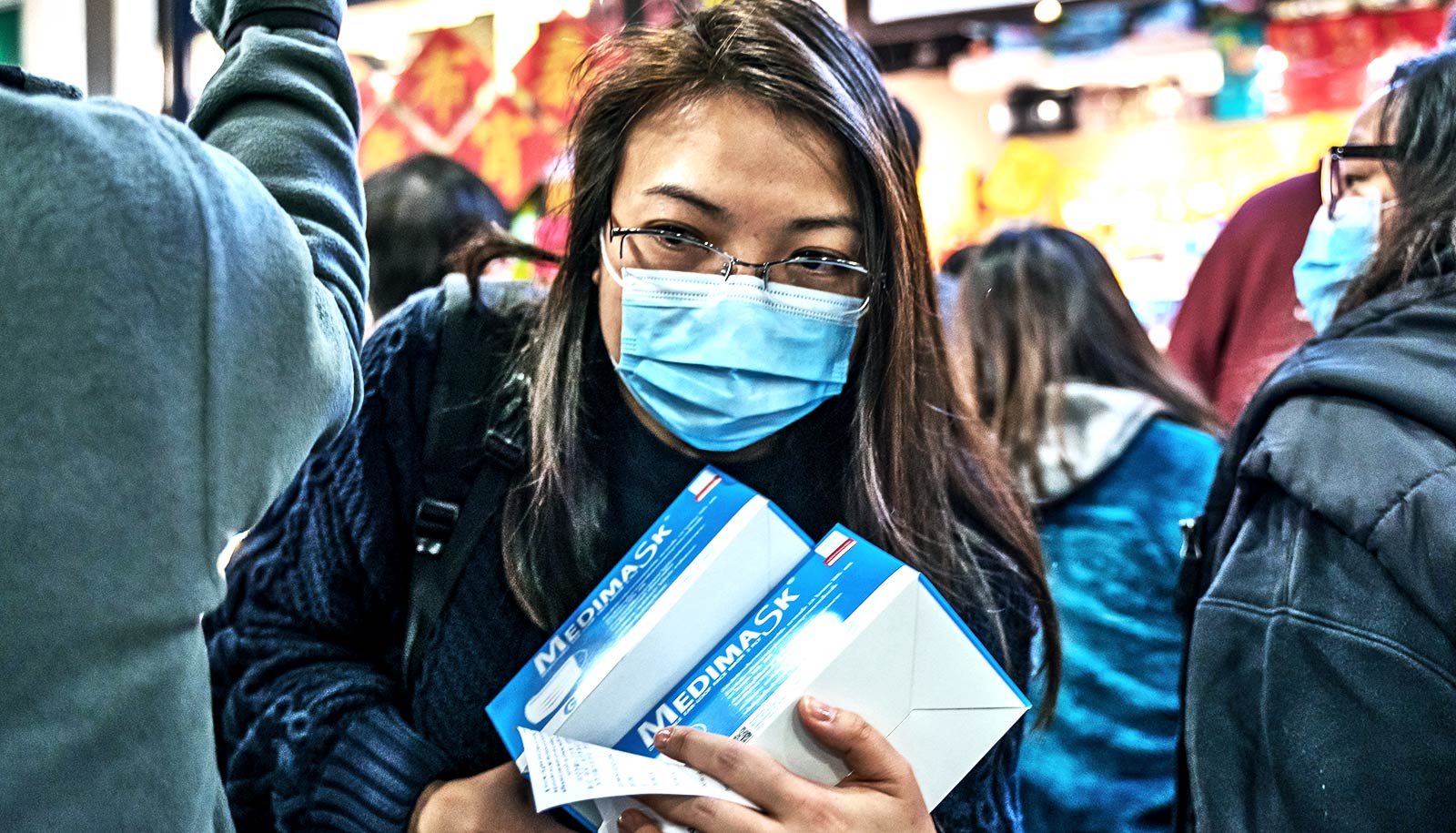The US-China relationship was troubled before the COVID-19 pandemic, but the outbreak underscores and reflects problems between the two nations for years, experts say.
“If the US-China relationship was a patient, it has a lot of preexisting comorbidities that COVID-19 is just going to exacerbate,” said Amy Gadsden, associate vice provost for global initiatives at the University of Pennsylvania and the executive director of Penn China initiatives, during a virtual event at Perry World House.
The event weighed in on how the pandemic might infect the relationship between the two most powerful nations on Earth.
Gasden and colleagues agree both nations bungled the initial response to the outbreak and are now trying to point fingers at each other.
“What we’ve seen is that each side tries to claim that this pandemic is revealing the other side’s weaknesses and what’s wrong with their system, their way of governing and running society,” says Avery Goldstein, professor of global politics and international relations in the political science department and inaugural director of Penn’s Center for the Study of Contemporary China.
At the same time each nation is trying “to emphasize how the way they are responding reflects all the strengths of their political system,” he says.
US-China relations and rivalry
In both China and the United States, the government was slow to respond to the crisis for essentially the same reasons, namely a fear that being truthful about the scope of the pandemic would undermine public faith in the leadership, Gadsden says.
“That looks very different in authoritarian China than it does in the democratic United States, but essentially the same concerns drove decision-making early on in the response to the epidemic.”
The rivalry between the US and China had grown ever since the Obama administration, and the trend toward decoupling was already underway before the pandemic, but the outbreak is exacerbating that, the experts say.
“We see that especially in the United States with the call to reduce American dependence on China for pharmaceuticals, and in concerns that the US seems to have to rely on China for masks and ventilators and gowns,” Goldstein says.
“Rather than saying we have to become self-reliant, what we need to do is diversify beyond China but sustain a healthy working relationship with China because they are a producer of some of these goods that are high quality and relatively low priced.”
Jacques deLisle, professor of law, professor of political science, and director of the Center for the Study of Contemporary China, calls the pandemic “almost the perfect storm” for the US to push a hardline stance.
“On the US side of it, it played to every piece of the Trump administration’s negativity on China,” he says. “You get to be nativist, you get to shut down travel, you get to call it the ‘Wuhan Virus,’ and you get to beat up on the WHO as a UN-centered institution and call it too close to China.”
Whether the viral outbreak has weakened or strengthened China remains to be seen, but there are competing arguments supporting both assessments, Gadsden says. As the US has retreated from being a global leader on the world stage under Trump, it has created a vacuum that China could fill, she says.
For Goldstein, one of the most frustrating challenges has been the tariffs put into place under the Trump administration.
“It really is kind of mind boggling that one of the first things the Trump administration did not do was to say, ‘We are temporarily suspending the tariffs on a relevant goods that can provide PPE to Americans who need these, medical workers on the frontlines in American cities and across the United States.’ That was, in my mind, a huge mistake,” he says.
Collaboration?
The idea that any collaboration in science and technology between the two nations is threatening national security, has been one of the biggest issues facing the US-China relationship, Gadsden says.
The experience of the pandemic is underscoring the importance of scientific collaboration and should encourage both countries to understand that decoupling of the scientific community is unwise.
Despite the current tensions, there is the possibility that the outbreak could lead to greater cooperation between the US and China, the researchers say.
“Hopefully, near-death experiences lead to serious attempts to prevent the next one,” deLisle says, adding he hopes the two nations could collaborate “not just on a vaccine but how to deal with future pandemics. That might also include “thinking about climate change, which is the slow-motion COVID.”
Both nations have needed to better manage the rivalry, Goldstein says. “Maybe the pandemic will help encourage that.”
Source: Penn


